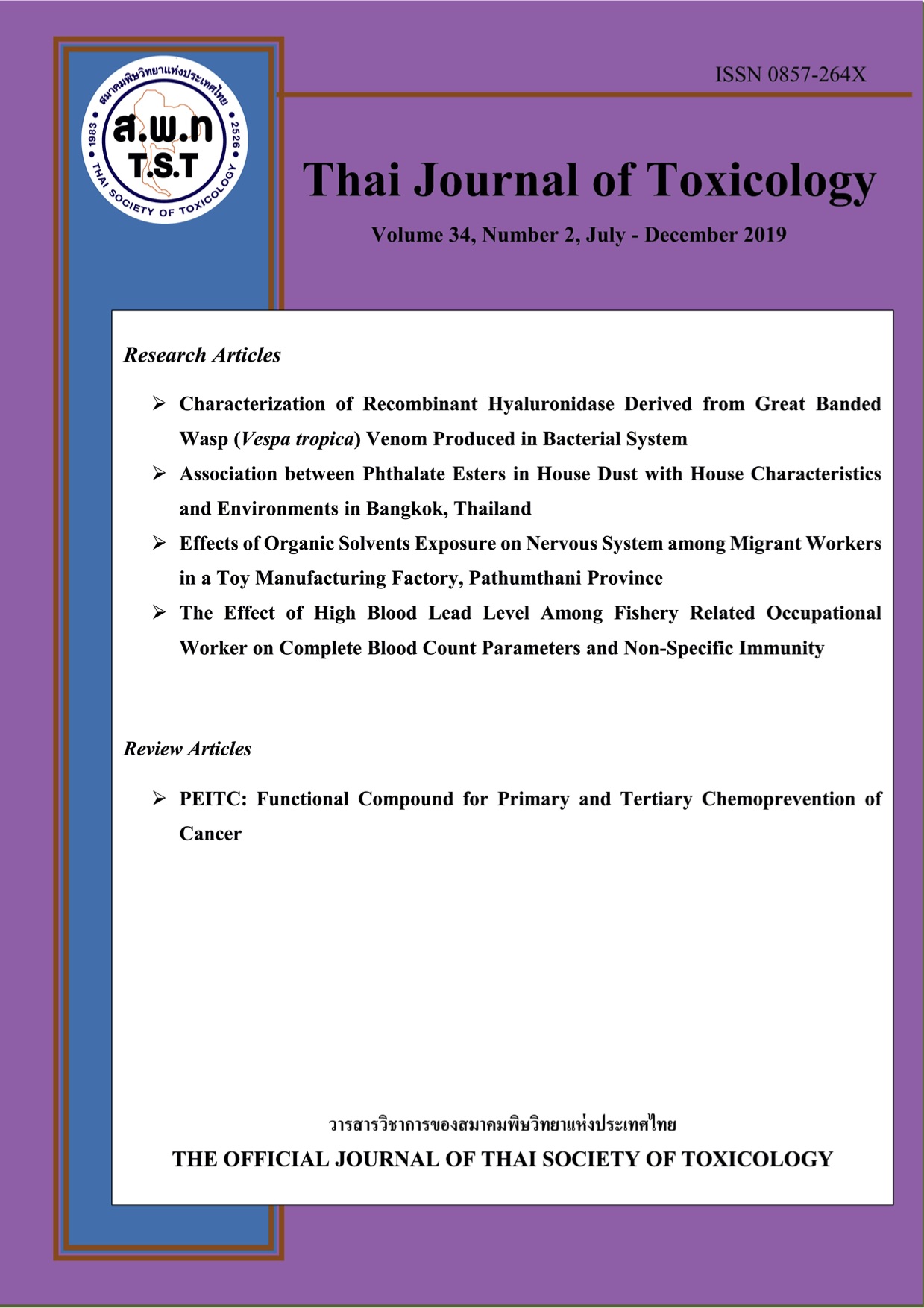The Effect of High Blood Lead Level Among Fishery Related Occupational Worker on Complete Blood Count Parameters and Non-Specific Immunity
Main Article Content
Abstract
Fishery related occupational workers have many roles, but they are vulnerable to lead exposure, resulting in high blood lead conditions. In this study, the hematological parameters from complete blood count (CBC) and phagocytosis efficiency were determined in fishery related occupational workers and compare with control related group. The results showed that the fishery related occupational workers had the average blood lead level higher than the control group. The careers with high levels of blood lead are sorted by descending level of blood lead are caulker, fishery net sinker, janitor, carpenters and mechanic, respectively. The results showed that all the CBC parameters compared between fishery related occupational workers and control group were not significantly different. However, the decreasing trends were found in the white blood cell number, red blood cell number, hemoglobin, hematocrit and mean cell volume. In other hand, the lymphocytes number, monocytes, other cell types, platelets and red cell distribution width were trendy increasing. In addition, the results of the study showed the efficacy of the phagocytic activity of fishery related occupational workers was significantly lower than controls. The study suggests that the risky occupation causes high blood lead levels that may lead to the trend of changes in some CBC parameters and reduction of phagocytic activity of innate immune system.


